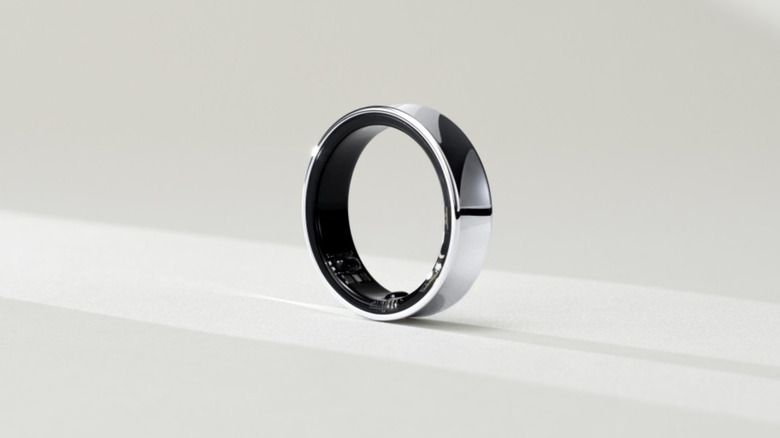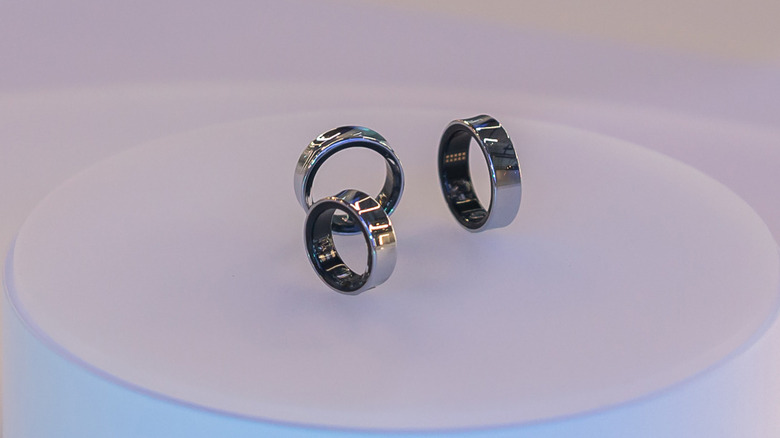MWC 2024: Does The Samsung Galaxy Ring Do Enough To Earn A Place On Your Finger?
We may receive a commission on purchases made from links.
At MWC 2024, Samsung finally showcased its first smart ring, which is scheduled to hit the shelves later this year. The ring looks slimmer than what the likes of Oura and Circular have to offer but doesn't really stand out with any unique design elements. In an official blog post, Samsung's VP & Head of Digital Health Team, Dr. Hon Pak, also outlined how the Galaxy Ring slots within Samsung's vision of a connected smart health ecosystem.
The Verge, however, reports that the ring will be available in three color options: silver, gold, and black. Samsung is tight-lipped about the kind of sensors it has packed inside the smartwatch, but the few wellness features that it has confirmed offer a glimpse into the hardware assembly. Among those features is My Vitality Score, an intelligent health analysis system that combines data from sleep patterns, heart rate, pulse variations, and physical activity to provide a holistic picture.
To collect that kind of data, the Galaxy Ring would certainly feature an LED-based heart rate sensor, most likely the Infrared Photoplethysmography (PPG) sensor that we also see on rival products. For activity tracking, an accelerometer will most likely find its pace inside the Galaxy Ring. Samsung has already confirmed that the My Vitality Score system will also make its way to the upcoming Galaxy Watch lineup later this year, but it seems the feature will only work when the wearable is paired with a Galaxy S24 series phone.
Samsung has all the ingredients ready to cook a success story
Another notable feature that has been confirmed for the Galaxy Ring is period and fertility tracking. This system was developed in collaboration with Natural Cycles. It was first announced for the Galaxy Watch 5 series last year and relies on biomarkers such as body temperature to predict fertility status with some help from custom algorithms. On a hardware level, the system requires a temperature sensor to measure the variations in Basal Body Temperature (BBT) during sleep, which means the Galaxy Ring will come armed with an infrared temperature sensor, as well.
Samsung's smart ring will also support the Booster Card system. The company says it keeps an eye on the health goals set by users and then offers insights that users can implement in the next phase of their health journey. All the aforementioned features will be bundled as part of the Samsung Health kit that will start appearing on compatible devices later this year.
So far, it seems the Galaxy Ring has all the core grounds covered that make up a well-rounded smart ring. Moreover, with nine sizes and three color options to pick from, it seems Samsung is offering more choices to smart ring enthusiasts than any other mainstream brand out there. Plus, Samsung already has a vast ecosystem of devices that tie in with the Samsung Health ecosystem, so it would be effortless for users to access their health data and even switch wearable devices with relative ease. It would be interesting to see how Samsung prices the Galaxy Ring, especially in a year when Apple's own smart ring efforts have also started making waves.

